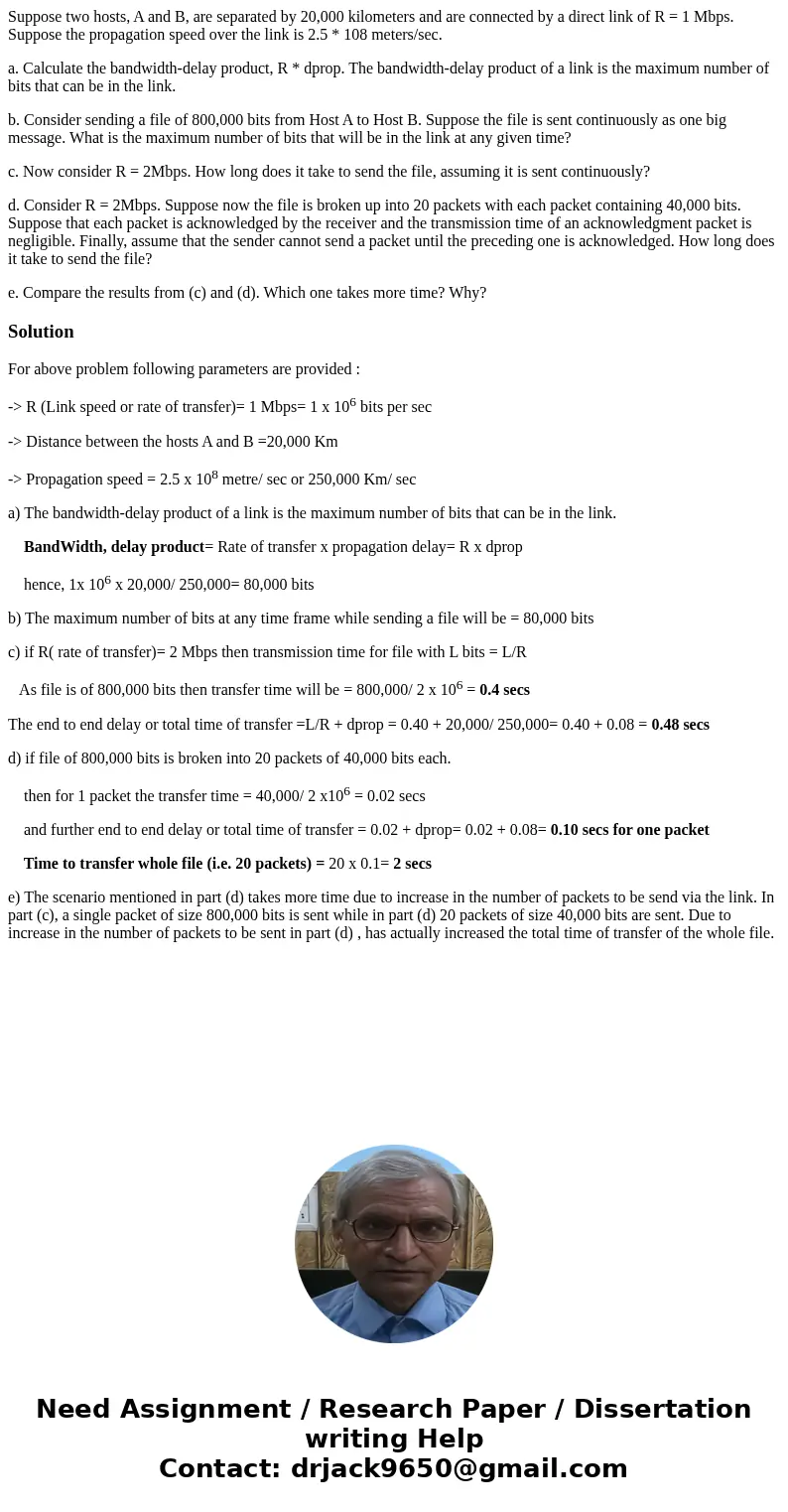Suppose two hosts A and B are separated by 20000 kilometers
Suppose two hosts, A and B, are separated by 20,000 kilometers and are connected by a direct link of R = 1 Mbps. Suppose the propagation speed over the link is 2.5 * 108 meters/sec.
a. Calculate the bandwidth-delay product, R * dprop. The bandwidth-delay product of a link is the maximum number of bits that can be in the link.
b. Consider sending a file of 800,000 bits from Host A to Host B. Suppose the file is sent continuously as one big message. What is the maximum number of bits that will be in the link at any given time?
c. Now consider R = 2Mbps. How long does it take to send the file, assuming it is sent continuously?
d. Consider R = 2Mbps. Suppose now the file is broken up into 20 packets with each packet containing 40,000 bits. Suppose that each packet is acknowledged by the receiver and the transmission time of an acknowledgment packet is negligible. Finally, assume that the sender cannot send a packet until the preceding one is acknowledged. How long does it take to send the file?
e. Compare the results from (c) and (d). Which one takes more time? Why?
Solution
For above problem following parameters are provided :
-> R (Link speed or rate of transfer)= 1 Mbps= 1 x 106 bits per sec
-> Distance between the hosts A and B =20,000 Km
-> Propagation speed = 2.5 x 108 metre/ sec or 250,000 Km/ sec
a) The bandwidth-delay product of a link is the maximum number of bits that can be in the link.
BandWidth, delay product= Rate of transfer x propagation delay= R x dprop
hence, 1x 106 x 20,000/ 250,000= 80,000 bits
b) The maximum number of bits at any time frame while sending a file will be = 80,000 bits
c) if R( rate of transfer)= 2 Mbps then transmission time for file with L bits = L/R
As file is of 800,000 bits then transfer time will be = 800,000/ 2 x 106 = 0.4 secs
The end to end delay or total time of transfer =L/R + dprop = 0.40 + 20,000/ 250,000= 0.40 + 0.08 = 0.48 secs
d) if file of 800,000 bits is broken into 20 packets of 40,000 bits each.
then for 1 packet the transfer time = 40,000/ 2 x106 = 0.02 secs
and further end to end delay or total time of transfer = 0.02 + dprop= 0.02 + 0.08= 0.10 secs for one packet
Time to transfer whole file (i.e. 20 packets) = 20 x 0.1= 2 secs
e) The scenario mentioned in part (d) takes more time due to increase in the number of packets to be send via the link. In part (c), a single packet of size 800,000 bits is sent while in part (d) 20 packets of size 40,000 bits are sent. Due to increase in the number of packets to be sent in part (d) , has actually increased the total time of transfer of the whole file.

 Homework Sourse
Homework Sourse